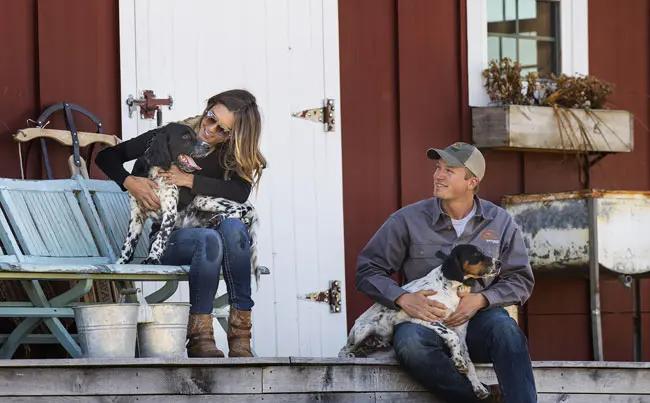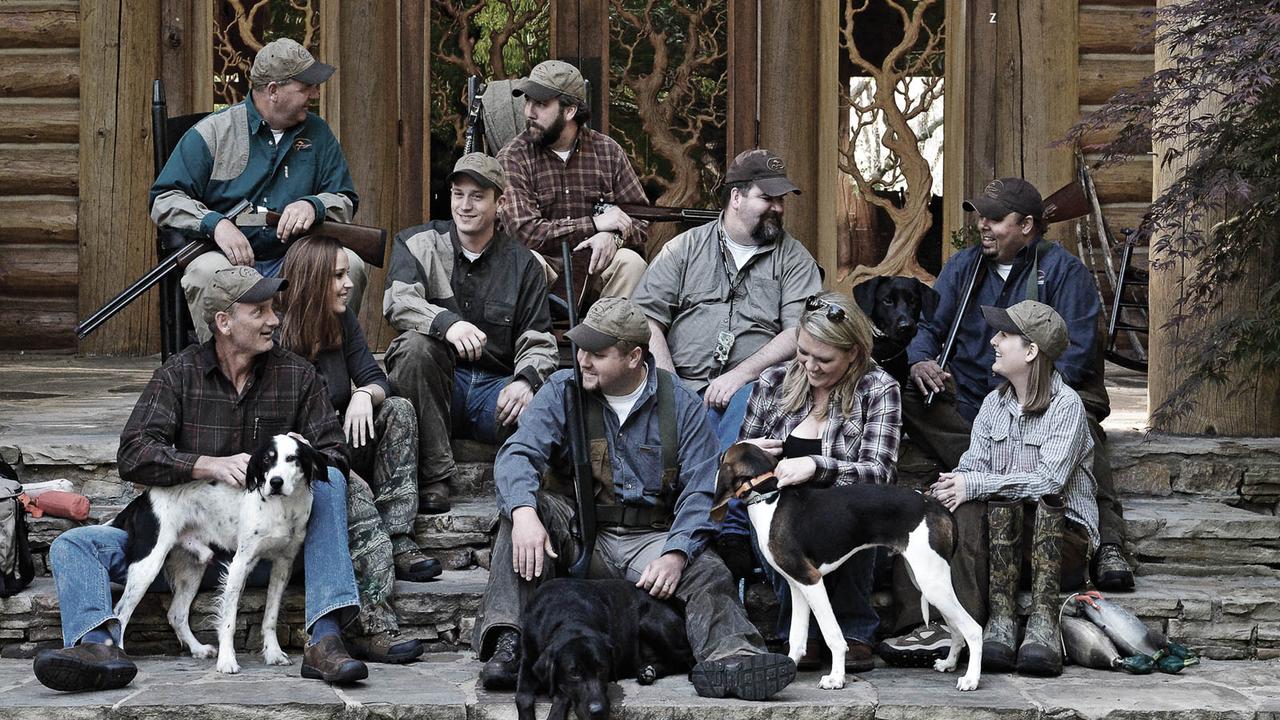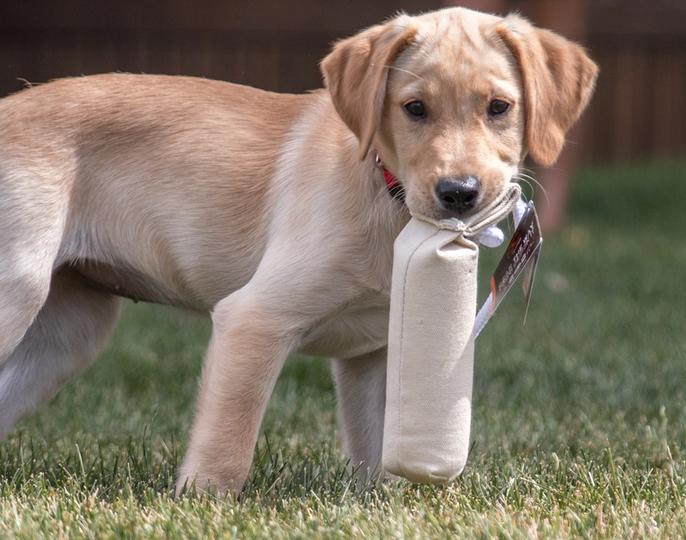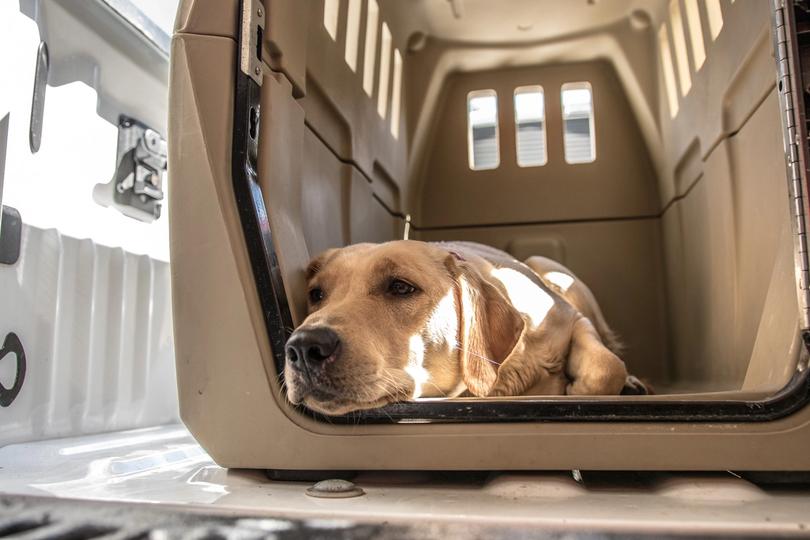
Gun Dog Training: 3 Things Your Puppy Should Learn
Posted by The SportDOG StaffIf you're reading this article, you probably own, have owned, or are thinking about owning a gun dog pup. To train your pup to be a retrieving machine, here are three things that are crucial to teach it from day one.
1) Socialise, Socialise, Socialise
Your home is unfamiliar to your new puppy. Depending on where you got it, there might've been limited human interaction. This is the first time being away from mum and many sights and sounds are brand new.
During this period, you want to make sure you socialise your puppy. Take your new best mate everywhere you go. Your puppy must learn how to deal with other people, dogs, and sounds, or it could lead to big problems. Taking it on trips to the farmers' market, walks, or to a cricket match, will be monumental in getting your puppy used to its surroundings.
Quick tip: Grab a lead, attach it to your pup and tie it to your waist. Lead your pup around the house while doing your everyday chores. You want your dog to heel in the field, so this is a top way to start that process. Remember to take it easy during this awkward puppy stage.
2) Teaching A Puppy To Fetch
In the early stages of your puppy's life, you want to make learning to fetch quick, fun, and unstructured. So, what gear will you need? Grab a couple natural canvas dummies and a check cord. Attach the check cord to the puppy’s collar, stand on the other end, or keep it in your hands. This will allow you to guide your puppy when needed and maintain control. Get your puppy keen on the dummy by being playful. Wiggle the dummy back and forth, let the puppy have a go at it, then chuck it 1.5 to 3 metres in front of you and let 'em run. All you should be focusing on right now is making fetching a good time for the pup.
Once your puppy is bringing the dummy back to you, show it some affection and get excited! Tell it “good dog” and give it a loving scratch behind the ear. The trick with these sessions is to keep them short. Toss the dummy a couple of times to start with, and increase the number of throws and the distance as you get on with your dog.
Training sessions should only last a few minutes with a seven- to nine-week-old puppy. You want to finish each session with the dog keen to fetch more dummies. The most common mistake is to chuck too many dummies, which makes the dog lose interest in the task. Also, don’t be too harsh with your puppy or it can get nervous about retrieving. Keep it brief and enjoyable and you’ll see progress.
Quick tip: Hallways are great places to teach retrieving. It gives a puppy limited places to take the dummy. Get the puppy on the check cord, close the doors in the hallway and toss the dummy down the hallway. Let the puppy go get it and give some guidance with the check cord to bring it back to you.
3) Crate Training
The crate is your puppy's new home. This is where it'll sleep, ride on hunting trips, holidays, or to a footy match. Your puppy needs to love it. It should be a safe place, which means nothing bad happens to the puppy in its crate. It's not a place to send your puppy when being punished in the younger stages of its life.
Considering most of your yak with the doggo will be verbal and visual commands, give the dog a word to associate with getting in the crate, like "kennel." This gets rid of any confusion caused by longer phrases.
Quick tip: Your puppy's gonna have a bit of a cry when you start this process. It's just like bringing a bub home. It's an unfamiliar environment and your puppy needs to adjust. Some dogs adjust quick and some take a bit longer. Be patient with the puppy and it'll soon learn to love its crate.
Dogs have unique personalities. Your puppy might want to explore, or you might have one that doesn’t leave your side. Your puppy might have a bold personality, so you have to be firm, or you might have a sensitive one that needs things calm, simple, and slow commands. The most important thing to know is that each dog is different, so how you teach should vary.
The early days are exciting times for a new gun dog owner and puppy. Remember, keep training simple, and build a relationship with your dog. It’s going to be a long journey to make your puppy the retrieving machine you want as your mate, and like any partnership, it takes time to build trust.

The SportDOG Staff
Related Articles

3 Ways You're Stuffing Up Your Gun Dog Pup
by Greg McGuffin
Puppy owners make heaps of training blunders. They might not realise it at first, but it's the small stuff that sets apart pro trainers from owners who just have a crack at training. As a pro trainer, I've seen every kind of dodgy pup and spent endless hours fixing up poor habits. Typically, when a 6-month-old puppy...

4 Good Reasons to Crate-Train Your Dog
by Rick Grant
One of the first things you should do when you get a new puppy is get him used to spending time in his crate, or portable kennel. If your dog lives in the house, the crate is a good place for him to be when you don’t want him underfoot....
